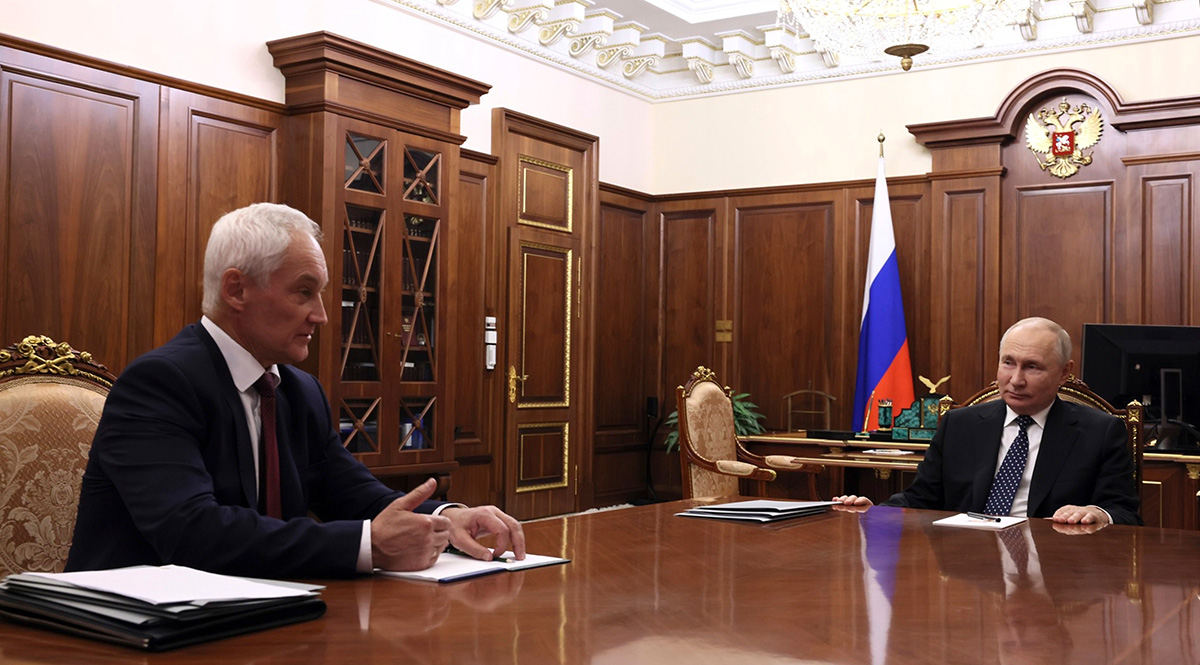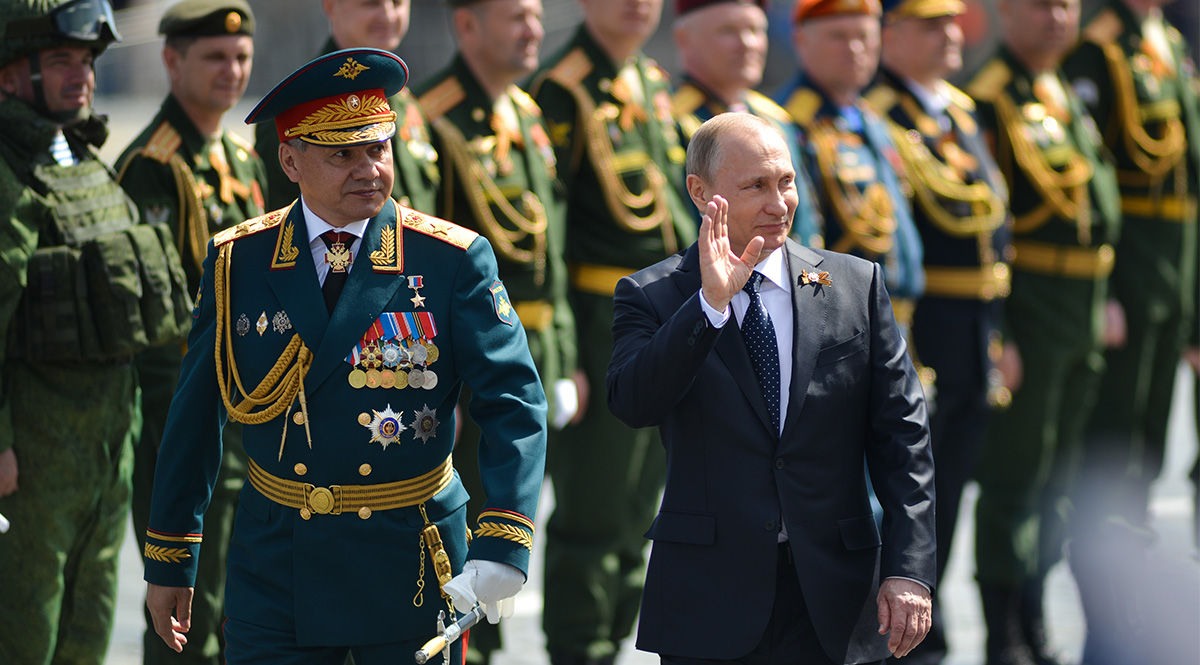Putin Appoints New Defence Minister
On 12 May, as part of the reconstruction of the government following the inauguration of his new term, Vladimir Putin announced that Andrei Belousov would become the new defence minister and that the previous minister, Sergei Shoigu, had been nominated secretary of the Russian Security Council. This decision was dictated by, among other things, the lack of success of what Russia calls the “special military operation” (SMO) in Ukraine. This change will not affect how Russia conducts its war in Ukraine or its hostile hybrid actions towards NATO.
 Gavriil Grigorov/Kremlin Pool / Zuma Press / Forum
Gavriil Grigorov/Kremlin Pool / Zuma Press / Forum
Why was Shoigu dismissed as defence minister?
Shoigu’s dismissal after 12 years as defence minister was prompted primarily by the lack of progress in military operations in Ukraine despite the increasing funding for the armed forces and partial mobilisation. The resignation was also provoked by the arrest on 24 April on corruption charges of Deputy Defence Minister Timur Ivanov, who was considered one of Shoigu’s most trusted men and responsible for a number of key initiatives such as construction projects and military procurement.
Putin used the planned government reconstruction to make the change. Such a step had been discussed in Russian media since at least Yevgeny Prigozhin’s revolt, which demonstrated the significant weaknesses of the Russian army (problems with logistics, shortages in the supply of soldiers, low levels of command, corruption), due to which it could not conduct effective military operations. Moreover, it was speculated that Shoigu may have deliberately misinformed Putin about the situation at the front, including by exaggerating successes. With his decision, Putin wanted to demonstrate that he has total control of the army and the course of military action in Ukraine. Although the resignation revealed divisions within the Russian power elite and proved that, contrary to claims, the course of the SMO has been misjudged by Putin, it may strengthen his position as commander-in-chief.
What tasks has the new defence minister been given?
The main tasks for Belousov will be to integrate the Russian arms industry with other sectors of the economy, to structure the funds allocated to the army and armaments so that they are used in the most efficient way possible, and to implement the innovations needed on the battlefield.
Belousov served as Russia’s first deputy prime minister from 2020 until he was named defence minister. He is an economist and was the Economic Development minister in 2012-2013. He was on the Rosneft board of directors from 2015 to 2017, and served as chairman of the board of the Russian State Railways since 2020. His previous academic and state activities have focused, among other things, on industrial development and the role of the state in this regard. What is more, Belousov is identified in the media as one of the few high-level government officials who is not corrupt. He will also be completely loyal to Putin. Naming a civilian as defence minister will allow the Russian president to increase his control over the military command.
How will the change affect Russia’s security policy?
Despite his resignation, the redeployment of Shoigu as secretary of the Russian Security Council shows that he has not completely lost Putin’s confidence and will continue to have a strong influence on how Russian security policy is shaped. The reform of the armed forces he proposed at the end of 2022 will be implemented and the army’s capabilities expanded. Russia will not only continue military operations in Ukraine, but may increase their scope. This is evidenced by the lack of change in the position of Chief of the General Staff and leaving this function to Gen. Valery Gerasimov, as well as the decision to increase the efficiency of the arms industry. The realisation of the objectives of the SMO is Putin’s most important political objective for this term in office. Russia will also continue to try to blackmail NATO states with the threat of nuclear escalation, as well as conduct hostile hybrid actions against the Alliance and increase capabilities in the western strategic direction.



.jpg)

